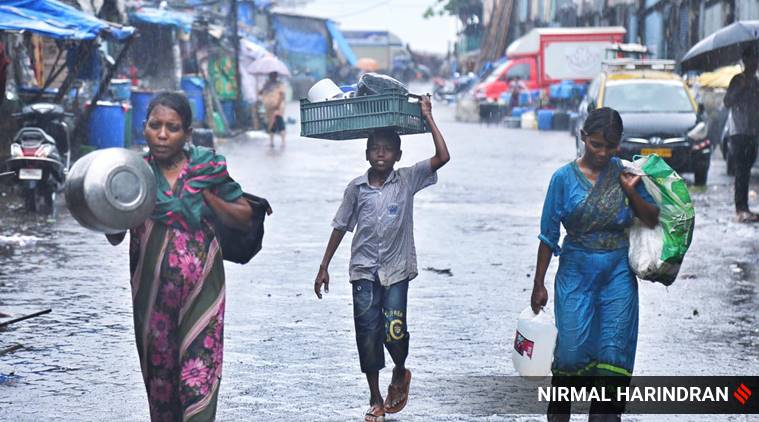 People getting evacuated from Darukhana in Mumbai as Cyclone Nisarga sets in.
People getting evacuated from Darukhana in Mumbai as Cyclone Nisarga sets in.
Cyclone Nisarga came to my village last week and swept away all links to the modern world. So, as I write these words I find myself wondering if I will be able to file this column in time for my deadline. There is no electricity in the village, no telephone lines and no Internet. When I enquired why everything collapsed altogether, I discovered that fibre optic cables are not buried underground as they should be but dangle from the same poles from which dangle a twisted web of electricity and phone lines. These fragile links to the modern world could not withstand the fury of the cyclone. Most villages along the Konkan coast are as cut off as we are and, of course, this does not make national news because Nisarga was kind enough to spare Mumbai.
It is a tribute to Tata Sky that it managed to continue its services except during the worst moments of the cyclone, so it was from TV news that I discovered that the havoc wreaked by Nisarga in this village was no longer important. Once Mumbai was safe, the cyclone stopped being an important story. I have been locked down in this village by the sea since the first lockdown began, so this makes it the longest unbroken period I have spent in rural India. This has made me more than ordinarily sensitive to how insensitive we in the media are to the problems that the vast majority of Indians face. Nothing brought this out more painfully than our insensitivity to the horrible journeys that migrant workers have made since that first lockdown began at four hours notice. Had they been middle class city people, we in the media would have covered every step of their journeys and this would have made our political leaders pay attention sooner than they did.
It is because we in the media care so little about Gandhiji’s ‘real India’ that our political leaders and officials care even less. Officials are forced to do some spells of duty in rural areas but political leaders once they get elected return only at election time. It has always been this way but for a while after Narendra Modi first became prime minister it seemed that things would really change. Remember how he ordered his MPs and MLAs to adopt villages and make them into ‘model villages’? What happened to that story? Remember how he ordered his senior bureaucrats to return to the villages in which they had their first posting and report to him the changes they saw? What happened to that story?
As a city hack who travels a little more than my brethren, but not nearly enough, I confess that living in a village for such a long period has taught me more about the real India than I ever knew. The lesson that has left the deepest impression on me is that rural life is fragile and uncertain in the best of times and breaks down totally when bad times come. When the pandemic came, everyone realised that if someone got seriously sick with this mysterious new sickness, they would die because the nearest hospital, in a town that is 20 kilometres away, was not equipped to deal with Covid-19. People became so fearful that they began to shun outsiders. But, then they showed extraordinary humanity by helping Bihari workers in the fishing industry return to their homes. The buses that took them home were paid for by local people.
Everyone had barely accepted the hardship caused by these lockdowns when the cyclone came. It arrived stealthily. I woke on Wednesday morning to an ominous stillness in the air. The sea was silent, there was not a breath of wind and even the birds were silent. Then a steady rain began that lasted till news came that the cyclone had landed in a town not far from this village. Then suddenly huge, angry winds swept into the village tearing down coconut trees and ripping tin roofs off houses and tossing them around. I tried for the first moments to take pictures on my phone but quickly realised that this was dangerous and so I spent the rest of the day indoors listening to the violence of the storm that seemed to go on for an eternity. When it finally passed and a fragile sort of calm descended, I emerged to find roads covered in broken trees and debris everywhere. They say it will take a few days more for the electricity to come back and a few more days for Internet and phone services to be restored.
In the aftermath of the cyclone, without phones, emails and digital newspapers, I have found time to dwell on the absurdity of political leaders and high officials sitting in distant cities deciding the future of people who live in what can only be described as another country. I have always sneered at the distinction people make between India and Bharat but have discovered the hard way that the distinction is real. And, now I have to end because the Internet has returned on account of some ‘jugaad’ by my local service provider but he tells me he is not sure how long it will stay.
It really is time for our politicians and high officials to rediscover what life is like in the backwaters of the ‘real India.’